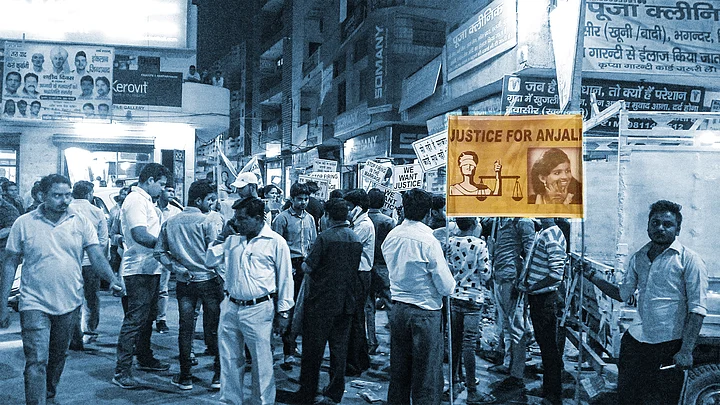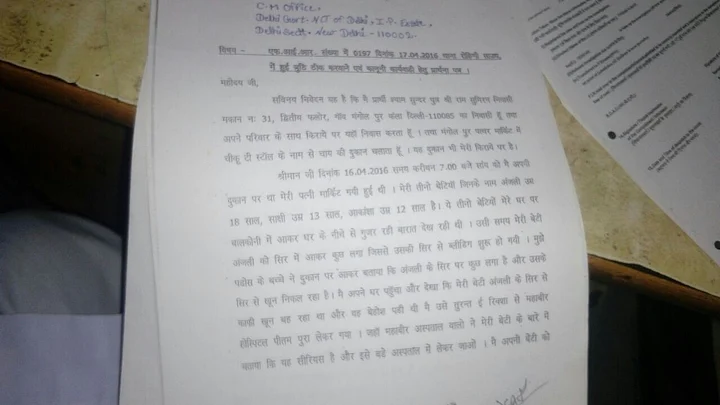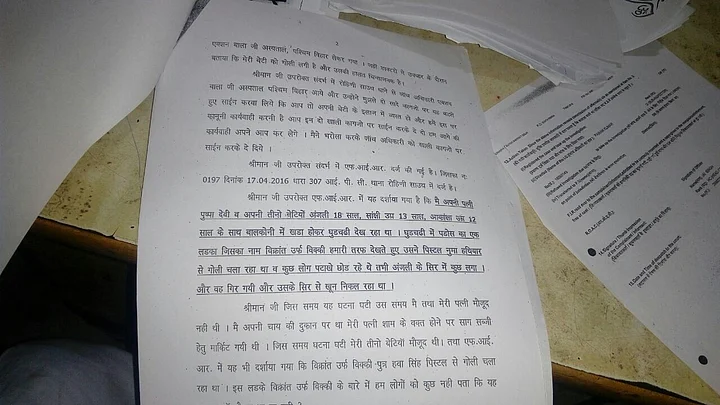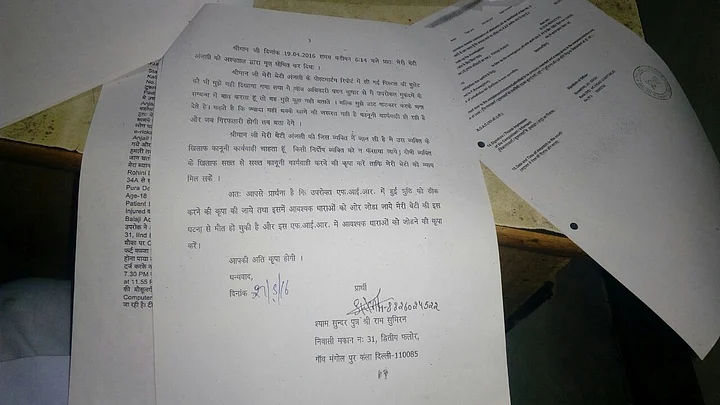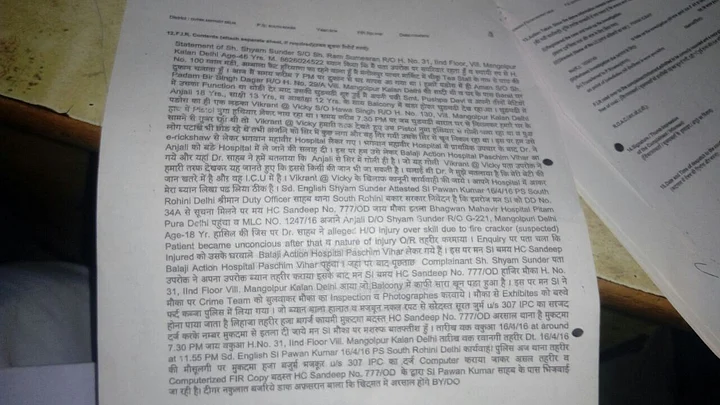It was just another day at Shyam Sunder Kaushal's tea shop in Delhi’s Mangolpuri area when his neighbour rushed to summon him. Kaushal’s daughter Anjali had been hit by a cracker and had collapsed, the neighbour told him.
When Kaushal reached his house – not too far from his tea shop – he found 17-year-old Anjali unconscious.
“Only when we took her to a hospital we realised that she had been hit by a bullet. Two police officers told us that the bullet had been fired at a wedding,” Kaushal tells The Quint.
Shockingly, Anjali wasn’t even at that wedding. She was merely standing on the balcony watching the baraat go by when the bullet hit her.
Two days after she was shot, on 19 April this year, Anjali succumbed to her injuries.
“It’s been nine months since my daughter passed away, but nothing concrete has happened. And no one has come forward to help us,” Kaushal says. “We were told that all the media attention will put pressure on the authorities but nothing has happened,” he laments.
When the Law Falls Short
More than 10 cases of deaths from celebratory firing – a loose term for shooting a gun into the air in celebration – have been reported in less than a month.
These stray bullets have often left a long, bloody trail at wedding celebrations in India. Culturally, carrying a gun, especially for the men, is a symbolic display of power and manhood. But, is there a legal deterrent in place?
“There is no legal provision to make celebratory firings a criminal offence,” Akash Vajpai, an advocate at the Delhi High Court who got Kaushal to file a Public Interest Litigation (PIL), told Scroll. “For a licensed gun, the license can get cancelled under the Arms Act. But there should be provisions in the law to deter people from indulging in the life-threatening act itself.”
On Monday, the Sangwan khap in Uttar Pradesh banned celebratory firing. In December, the Haryana government banned carrying of arms at wedding functions. This was preceded by a 2012 Allahabad High Court ruling that ordered the same.
“This is not of any use. Nobody does anything. The police has done nothing. Only one person has been arrested and he was already wanted by the local police,” Kaushal says.
Anjali’s case was subsequently transferred from the Delhi police to the Crime Branch. The First Information Report (FIR), registered at Rohini (South) police station, states that a man, named Vikrant alias Vicky, fired from his pistol. It also says both Kaushal and his wife Pushpa Devi were witnesses to the act.
“This is wrong. In my statement, I have maintained that both of us were not home when this happened. I was at my tea shop and my wife was at the bazaar. The SHO abused us, pressurised us into becoming witnesses,” Kaushal says.
A Deceased Daughter, a Helpless Father
Lack of witnesses is one of the biggest challenges in Anjali’s case and in cases of celebratory firings in general. This, obviously, makes prosecution more difficult.
“Everybody would have been a witness to the incident but it was a village wedding, and so they won’t take names. How has the police made the report? Who did they ask? Who gave eyewitness accounts? We don’t know anything,” Kaushal says.
He says he is helpless now. After making multiple visits to police stations as well as the office of DCP (Outer) Vikramjit Singh and the office of the Delhi Commission for Women, Kaushal decided to take the judicial route.
“I believe the police has cheated us. I was never shown the video footage on the basis of which the police claimed to have identified the man. I had no other option but to file a PIL but I do not know if I will get justice.”
Kaushal’s petition before the Delhi High Court asks for the practice of celebratory firing to be banned. It also demands accountability on the part of owners of the property where the incidents take place as well as reimbursement for the family of victims.
The next hearing on Kaushal’s petition is listed for 16 January.
‘Please Do Something For Her’
Before Kaushal’s petition, an NGO filed another PIL before the Delhi High Court asking for stringent norms for arms licenses. The Delhi Police does not even maintain a separate file for cases of celebratory firing.
Senior Superintendent of Police, Bhatinda, Swapan Sharma maintains that it’s unfair to expect the police to monitor every single place, including wedding venues. “It’s for Indians to decide what sort of society they want,” he says.
“We have lost all hope. People are still carrying guns and people are still dying,” Kaushal says expressing disappointment at how slowly things have proceeded since Anjali’s death. “Please do something, if you can,” he tells The Quint.
Kaushal is among many others who have lost a child to senseless displays of masculine power and who are seeking justice for an act triggered by few minutes of frivolity. He, along with others, know that even if their efforts succeed, it will never bring their loved ones back.
(At The Quint, we question everything. Play an active role in shaping our journalism by becoming a member today.)
